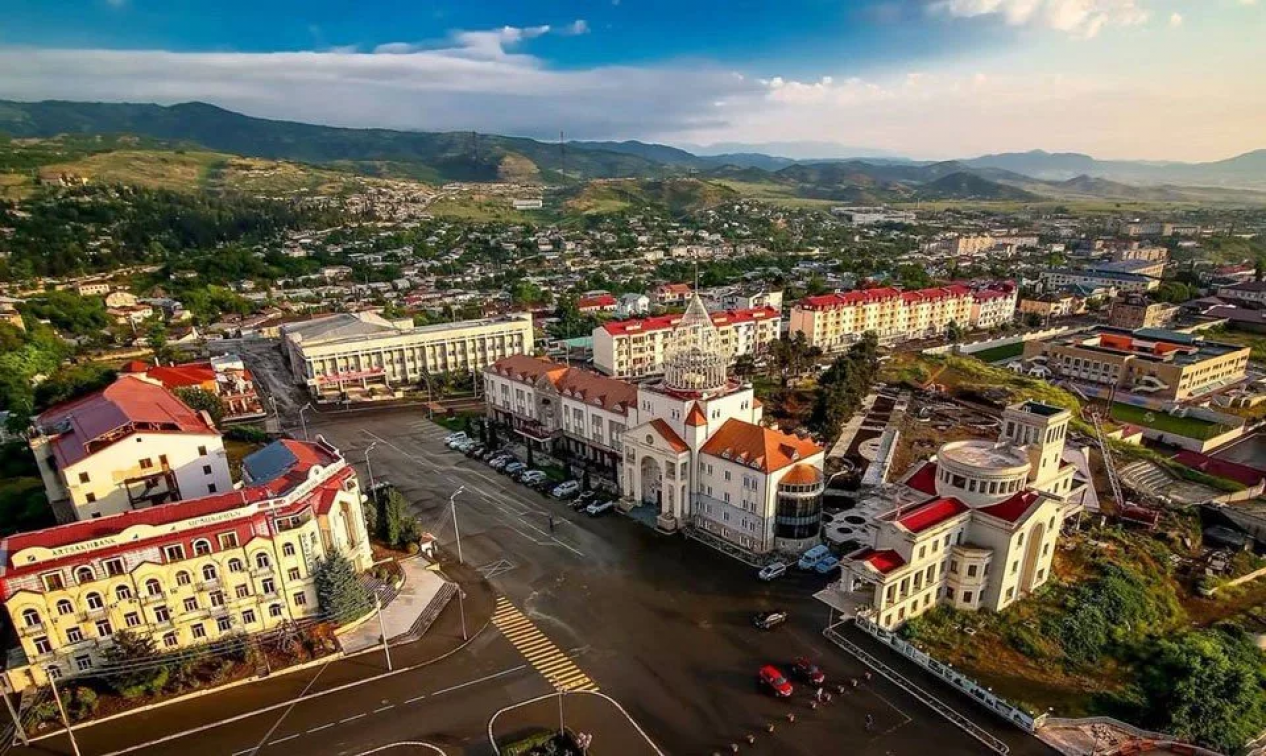
Head of the International Center for Human Development Tevan Poghosyan said in an interview with the ‘Voice of Armenia’ that ‘a document on the Azerbaijani occupation’ is being prepared. In his opinion, ‘the declaration of the ‘Nagorno-Karabakh Republic’ has not been canceled, there are decisions of 1991-1992 of the Armenian parliament on the inadmissibility of signing any documents bypassing the leadership of the ‘NKR.’ Poghosyan believes that the Armenian parliament should immediately begin the process of recognizing the separatist entity and say that the issue of ‘Hadrut, Shushi, Talish and Matakhis’ is not yet closed. "The key word is ‘republic.’ It is important that we are talking about a state structure that has its own borders and attributes: the Constitution, the flag, etc.,"Poghosyan said.
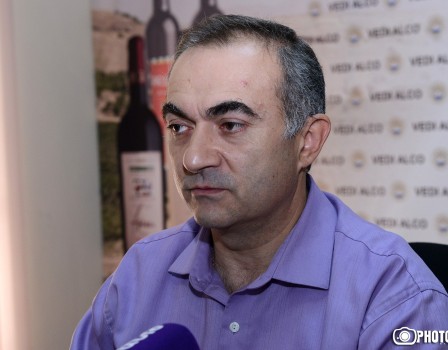
As is known, on September 2, 1991, the Armenian separatists made an illegal decision to proclaim the ‘NKR.’ On December 10 of the same year, a so-called referendum was held in Karabakh in the presence of “international observers,” at which local Armenians voted for complete independence from Azerbaijan. 1992, the "parliament" of the self-proclaimed entity adopted the so-called declaration "On State Independence."
It is not difficult to prove that none of these documents had a legal basis. Let’s start with the fact that Armenian Prime Minister Nikol Pashinyan considers all this illegal. Before the parliamentary elections, he said on the air of Armenian television that the "referendum" in Karabakh cannot be considered legitimate, because the Azerbaijanis did not take part in it.
Several years ago, commenting on the statements of Serzh Sargsyan to the radio station "Echo of Moscow", the Office of the President of Azerbaijan stressed that Baku excludes recognition of the results of the illegal 1991 referendum in Nagorno-Karabakh.
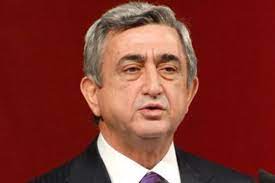
Speaking about the ways of solving the Armenian-Azerbaijani Nagorno-Karabakh conflict, Sargsyan stated that “the only way to resolve the conflict is a peaceful way, and the only way is to hold a referendum in Nagorno-Karabakh or to recognize the results of the referendum that was held in 1991 in full compliance with the legislation of the Soviet Union and international law. "
In this regard, the President's Office noted that the recognition of the results of the so-called "referendum" unauthorizedly held on December 10, 1991 in the Nagorno-Karabakh region of Azerbaijan is impossible, since, according to the expert opinion of lawyers, it was held in violation of USSR legislation, had no legal basis, not to mention any "compliance" with international law.
"Territorial integrity has no different forms, while the self-determination of peoples can be of different types - both internal and external, depending on the context. If the Madrid proposals of the OSCE Minsk Group presuppose the combination of these two principles, then this, according to the logic of things means choosing a form of self-determination that does not lead to a violation of the territorial integrity of a sovereign state. The only form of combining these two principles is self-determination within the territorial integrity, according to Article VIII of the 1975 Helsinki Final Act, which is the basis of the peace process - internal self-determination. Self-determination leading to the withdrawal of the Nagorno-Karabakh region from Azerbaijan violates the territorial integrity and, therefore, contradicts, first of all, the logic of the Madrid principles. Therefore, the position of Azerbaijan, which has adopted such a scheme, is of fully compromise nature – it contains both territorial integrity, which gives the possibility of self-determination within its framework, and self-determination, which does not violate territorial integrity," the Azerbaijani Presidential Office said.
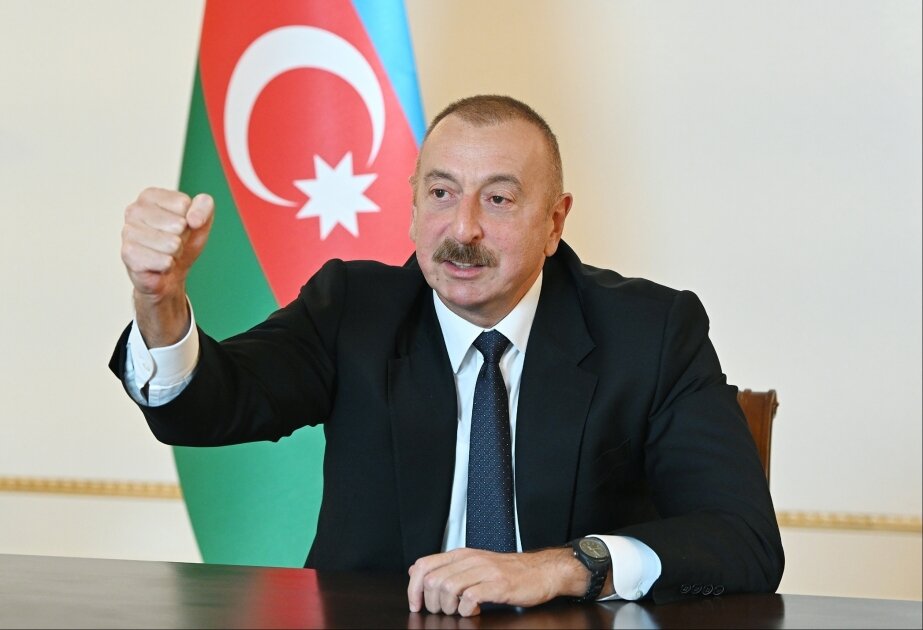
This comment was given ten years ago, when 20 percent of the territories of Azerbaijan were under Armenian occupation. At that time, the Azerbaijani side was still considering the possibility of granting a status to the Armenians of Karabakh - within its borders. Today, after the victory and liberation of the territories, Azerbaijan completely closed the issue of any status for the Karabakh Armenians. In his address to the nation on the signing of the trilateral statement on November 10, President Ilham Aliyev stressed: “Where are the demands of the Armenian side that Nagorno-Karabakh should be granted independence? When I offered them autonomy, they did not agree, they said no, it is an “independent state”. For many years, they have been living as an “independent state” and must gain independence from Azerbaijan... But where is the status? The status went to hell, it failed, it was scattered to smithereens, it is not and will not be there. As long as I am President, there will be no status.”
In contrast to the requirements of Armenia, Azerbaijan's approach is fully consistent with Soviet, national and international legislation. Armenians in their claims to "independence" are trying to be guided by the laws of the USSR. But do they have any rights under these laws? Attempts to legitimize the creation of the "NKR" on the basis of USSR legislation have the character of a farce and are intended only for persons who are not guided by the basic documents concerning the NKAO, the Polish historian Przemysław Adamczewski believes. His article “Legitimacy of the establishment of ‘the Nagorno-Karabakh Republic’” in compliance with Soviet legislation, published in the magazine ‘Caucasus and Globalization’ in 2012, contains answers to many questions.
The Polish historian points out that on July 3, 1990, the Supreme Soviet of the USSR adopted a key document, on the basis of which the Armenians are still trying to legitimize the creation of the so-called ‘NKR’ - the law "On the procedure for resolving issues related to the secession of the union republic from the USSR." According to it, a referendum on secession from the Union was to be held in each autonomy. However, one should not equate the referendum of December 10, 1991 with the referendum provided for by the law "On the procedure ...", since they dealt with different issues. The law concerned further stay in the USSR or in the seceding republic. While at the "referendum" in Nagorno-Karabakh, the following question was put to the vote: "Do you agree that the ‘Nagorno-Karabakh Republic’ would be an independent state that independently determine the forms of cooperation with other states and communities?"
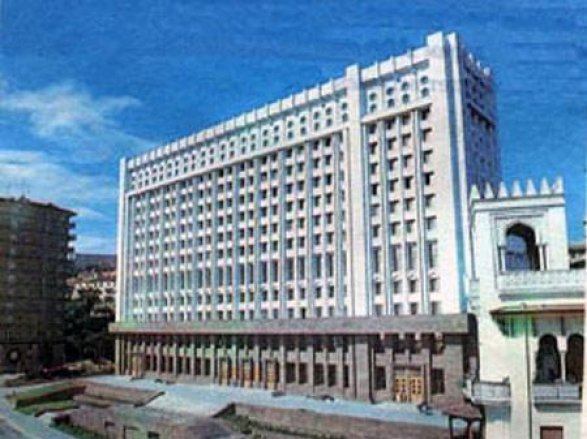
Such a referendum did not have any formalization in Soviet legislation. In addition, the addition to the law did not allow the autonomy to take a unilateral decision. In general, according to Adamczewski, the Armenians' attempt to prove the legitimacy of their claims by the provisions of Soviet laws only makes the situation worse for them.
The so-called "referendums", the results of which, according to Poghosyan, have not been canceled, have not been recognized by any country in the world.
The "referendum" held in NKAO on December 10, 1991 was intended to change the borders of the Republic of Azerbaijan, which contradicted Articles 78 and 79 of the USSR Constitution in force at that time and did not have any legislative basis.
In particular, the specified articles of the Constitution of the USSR stated:
“Article 78. The territory of a union republic cannot be changed without its consent. The boundaries between union republics can be changed by mutual agreement of the respective republics, which is subject to approval by the USSR.
Article 79. The Union Republic determines its territorial, regional, district division and decides other issues of the administrative-territorial structure."
In addition, the desperate attempts of the Armenian leadership to refer to the USSR Law of April 3, 1990 "On the procedure for resolving issues related to the secession of the union republic from the USSR" in order to bring a certain legislative framework under the illegal referendum is absolutely groundless, since this law lost its force back on September 5-6, 1991 as a result of the adoption by the Extraordinary Congress of People's Deputies of the USSR of the Resolution "On measures arising from the joint statement of the President of the USSR and the top leaders of the union republics and the decisions of the extraordinary session of the Supreme Soviet of the USSR," which established a new procedure for the withdrawal of union republics from the USSR.
The most recent decision of the highest union authorities in the history of the USSR was the Resolution of the USSR State Council of November 27, 1991 "On measures to stabilize the situation in the NKAO and the border regions of the Republic of Azerbaijan and the Republic of Armenia", which recognized unconstitutional "all acts that change the legal status of the Nagorno autonomous oblast, enshrined in the Constitution of the USSR," the decision “to restore constitutional order on the territory of the NKAO,” and the Resolution of the USSR Constitutional Supervision Committee of November 28, 1991 "On acts of the Supreme Soviet of the USSR and its Presidium and Supreme Soviets of the Azerbaijan SSR (Azerbaijan Republic) and the Armenian SSR (Republic of Armenia) on the Nagorno-Karabakh Autonomous Oblast," which recognized the resolution "On the reunification of the Armenian SSR and Nagorno-Karabakh" of December 1, 1989 and the decision of the Central Executive Committee of the Armenian SSR on the creation of electoral districts on the territory of the NKAO for elections to the Supreme Soviet of the Armenian SSR as not meeting the provisions of Constitution of the USSR and the laws of the USSR, and the resolution of the Supreme Soviet of Azerbaijan of November 23, 1991 on the liquidation of the NKAO - as inconsistent with Articles 86 and 87 of the Constitution of the USSR.
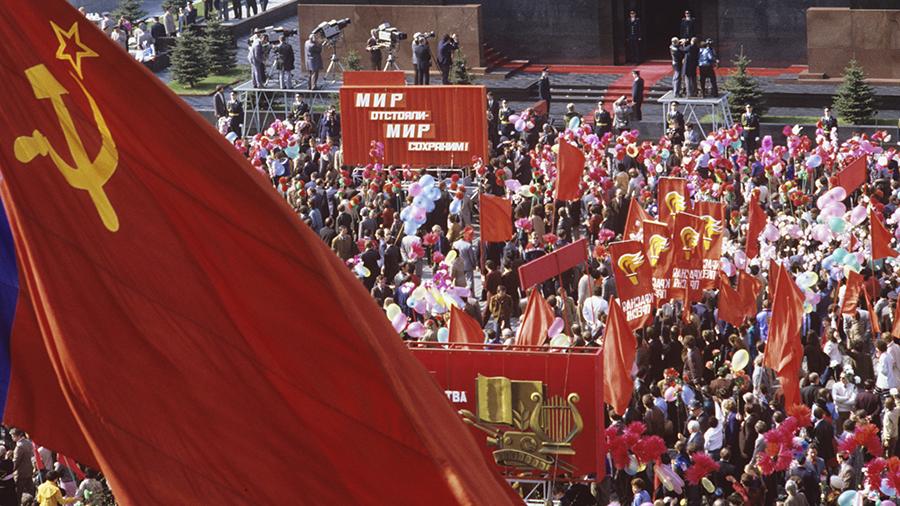
These two resolutions of November 27 and November 28 confirmed the status of NKAO within the Azerbaijan SSR, canceling the unauthorized proclamation of the so-called "Nagorno-Karabakh Republic" on September 2, 1991 in the place of NKAO and a number of other regions of the Azerbaijan SSR.
Thus, the Nagorno-Karabakh region de jure left the USSR only as a part of the Republic of Azerbaijan, and according to the international principle of uti possidetis juris, it was recognized by the international community, including the UN, exclusively as an integral part of the Azerbaijan state.
Not only was the so-called ‘referendum’ in the NKAO of Azerbaijan dated December 10, 1991, illegal, but, in the event of its unilateral holding, the subsequent "referendum" will be also illegal, since it would contradict Article 3 of the current Constitution of the Republic of Azerbaijan (which de jure includes Nagorno-Karabakh), saying that "the people of Azerbaijan can resolve any issue affecting its rights and interests through a referendum" and "changing the state borders of the Republic of Azerbaijan" can be resolved "only through a referendum."
Despite active propaganda, the bribery of lobbyists, the creation of its own caucuses in the parliaments of influential countries of the world, Armenia failed to change its view of the Karabakh "referendums." Subsequently, these illegal actions were carried out several times in the previously occupied Nagorno-Karabakh, and each time they were condemned by international organizations and countries, which stressed that they did not recognize the legitimacy of such actions.
"To be honest, all these years none of the co-chairs of the Minsk Group, and even the Armenian president himself, believed that such a referendum could ever take place. On this occasion, we even had a joke that the Armenians call it a "referendum", but this is actually a "neverendum," said the ex-co-chair of the OSCE MG Matthew Bryza.
Despite the deliberate senselessness of "referendums" and "elections," they continued to organize them in Karabakh.
The 2006 "constitutional referendum" suffered the same fate as the "referendums" of the early 90s - it was not recognized by any country, either. The European Union refused to recognize the results of the referendum in Nagorno-Karabakh, which anticipates the results of negotiations and "does not contribute to constructive efforts to resolve the conflict peacefully."
The referendum received a similar assessment from the representatives of the OSCE Minsk Group. They described the referendum as "useless" and suggested that it would not have any impact on the prospects for a settlement.
Secretary General of the Council of Europe Terry Davis considered the "referendum" on the adoption of "the first Constitution of Nagorno-Karabakh" illegal.
“The referendum in Nagorno-Karabakh, organized by the authorities of the self-proclaimed republic, has no legal force, and its results will not be recognized by the world community,” Davis said in a statement to Novosti-Armenia in the CE information office in Armenia.
In February 2017, another "constitutional referendum" was held, which had already been declared illegitimate before the "voting day." The OSCE Minsk Group (MG) Co-Chairs Igor Popov (Russia), Stephane Visconti (France) and Richard Hoagland (US) stated that they would not accept the results of the "referendum", and also stressed that its results did not prejudge the final status of the so-called "NKR." They said that no country, including Armenia, recognizes Nagorno-Karabakh as an independent and sovereign state. Accordingly, the co-chairs do not recognize the results of the "referendum" as affecting the legal status of Nagorno-Karabakh. The co-chairs also stress that the results in no way prejudge the final status of Nagorno-Karabakh.
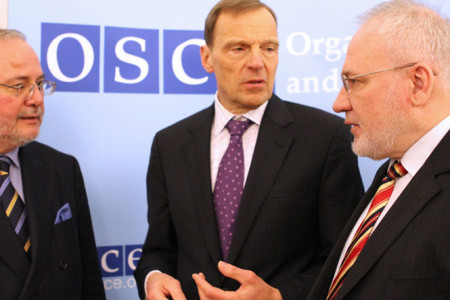
The most recent "presidential elections" in Karabakh took place in May 2020.
In an interview with the Japanese newspaper Nikkei last October, President Ilham Aliyev rejected the possibility of any future referendums in Karabakh.
"There will be no referendum in Nagorno-Karabakh. We will never agree to that. During the negotiations we haven’t agreed and now, when we took back the majority of territories, it’s out of the question," he said.
Thus, we have proved that the illegal voting and plebiscites held in the Karabakh region of Azerbaijan for thirty years had no legal basis and cannot in any way affect the receipt of any status by the Armenians of the region - not only independent, but even inside Azerbaijan. All such actions carried out by Armenia on Azerbaijani lands are outside the framework of international and national legislation. Thus, Tevan Poghosyan, based on political considerations, misinforms the Karabakh Armenians and gives them vain hopes.




















